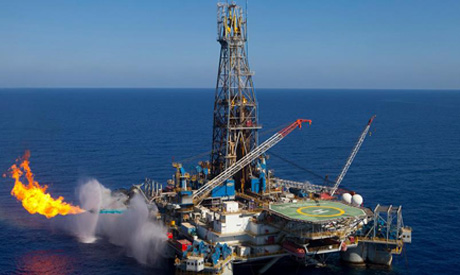
FDIs were mainly driven by the oil and gas industry, telecommunications, real estate, and consumer goods
Minister of Finance Mohamed Maait told MPs on Monday that Egypt was one of only a few countries in the world to have achieved high growth rates during the Covid-19 pandemic, thanks to its economic reform programme.
Maait said during his policy statement before parliament that the World Bank had said in a report issued recently that Egypt’s economic reform programme, which spanned 2016 to 2019, had enabled the country to absorb two shocks.
The first was the emerging markets crisis in 2018, and the second was the coronavirus crisis in 2020.
According to the World Bank report, preventive measures such as cutting interest rates and stimulating business had made the economy more capable of containing the negative impacts of the coronavirus.
The report stated that strong local consumption had helped balance weaker tourism and investment revenues, making the Covid-19 crisis less severe than expected. It added that consumption had remained relatively robust, supporting growth in other sectors.
“Measures taken to address health and social needs and support the sectors most directly affected by the crisis appear to have helped mitigate the impact of the shock,” the report said.
It estimated growth in the Egyptian economy in 2020 to be 1.5 per cent, leading to a “sooner-than-expected” recovery in the 2021-22 fiscal year.
The International Monetary Fund (IMF) also praised the initiatives taken by the Egyptian government and the Central Bank of Egypt (CBE), along with the Egyptian banks’ strong liquidity buffers, in supporting credit and economic activities during the coronavirus crisis.
Maait told MPs that state revenues had increased by 16 per cent in the first half of the 2020-21 fiscal year, saying this was a very good development taking into account the painful effect of the coronavirus crisis.
“The state’s expenditure increased by 10 per cent because of the increase in spending on the healthcare sector, pensions, and social protection programmes,” he added.
The primary fiscal surplus of 1.8 per cent of GDP had exceeded expectations, according to the IMF report, reflecting savings on energy subsidies from lower oil prices and lower-than-planned transfers to the social insurance fund.
The IMF report also said that growth of 3.6 per cent in the 2019-20 financial year had been more than the projected two per cent, and that the unemployment rate had declined in the third quarter of 2020 to 7.3 per cent, accompanied by an increase in the labour force, compared to 9.6 per cent in the second quarter of 2020 at the height of the lockdown during the first wave of the coronavirus pandemic.
Egypt had been targeting a six per cent growth rate in 2020, but to achieve 3.6 per cent growth despite the coronavirus crisis and its global repercussions was still a good figure, Maait said.
Another report issued by the UN Conference on Trade and Development (UNCTAD) said that Egypt had attracted more foreign direct investment (FDI) than any African country in 2020.
The report stated that the flow of FDI into Egypt stood at $5.5 billion despite a significant decline of 39 per cent compared to 2019 when the country also attracted the most FDI to Africa at $9 billion.
The investments, according to UNCTAD, were mainly driven by the oil-and-gas industry along with other non-oil sectors including telecommunications, real estate, and consumer goods.
However, the report stressed that incentive measures and the rolling out of vaccines were not the only factors to help achieve a sustainable recovery from the pandemic. The quality and effectiveness of such measures were also key to building resilience in the face of future shocks, it said.
The report warned that the social and economic impacts of the pandemic would remain tangible in the coming years, unless there were “smart” investments in building economic, social, and climate resilience to ensure the sustainable recovery of the global economy.
Maait said that the government’s objectives were to achieve macroeconomic stability, realise sustainable development, deepen structural reforms to raise the economy’s competitive edge, and implement greater social protection programmes to improve the standard of living of poorer people.
*A version of this article appears in print in the 4 February , 2021 edition of Al-Ahram Weekly
Short link: